
Immerse issue #13: On engaging with AI
At the new Co-Creation Studio at the MIT Open Documentary Lab, we’ve identified artificial intelligence as one of our key research areas because it is so disruptive and because we sit in a center of AI development and research. As documentarians, journalists, and artists, we feel a responsibility to engage with the most central issues of the day, to understand, educate, and speak truth to power.
Artificial intelligence is a powerful tool, but it’s the people who understand and can influence its trajectory that hold the real power. Let’s make that all of us—now is the moment to jump in and steer it to good. I offer this reading list as a place to start.
The idea that a machine can think like a human challenges the very essence of what it means to be human. What is intelligence? Consciousness? Emotion? Creativity? What are the processes behind them? Can our brains really be mapped onto a machine? Developments in artificial intelligence in 2017 alone certainly raise the question.
As far back as the 1950s, John McCarthy—credited with coining the term “artificial intelligence”—and Marvin Minsky, a former professor at MIT, thought so. They founded the artificial intelligence lab at MIT in 1959.
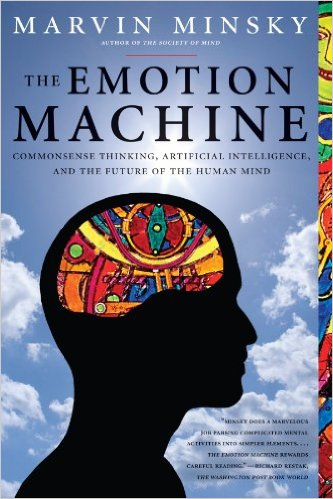
Minsky wrote two foundational books in the field, Society of Mind (1986) and The Emotion Machine (2006) — both of which posit that there is no real difference between humans and machines. Minsky and McCarthy believed that machines could be trained to think like humans. In Society of Mind, Minsky presents a theory that he developed together with Seymour Papert that the mind is made up of many interactions by unintelligent “agents” that when joined together become intelligent. For Minsky, “there is not the slightest reason to doubt that brains are anything other than machines with enormous numbers of parts that work in perfect accord with physical laws.’’ In The Emotion Machine, Minsky argues that emotions are just another way to think and are indistinguishable from any other thinking process.
The quest to create intelligent machines is a deep-seated human pursuit and today, with the rise of big data, more powerful computers, and better algorithms, machines are taking over cognitive processes never before possible. But whether machines will truly achieve human intelligence, and even go beyond, is a source of great debate, as is what to do about machines that are behaving more like us or that will eventually surpass us. The ethical issues are profound.

An excellent introduction to the field is MIT professor Max Tegmark’s Life 3.0: Being Human in the Age of Artificial Intelligence. Published in 2017 and aimed at a general audience, it maps the AI landscape and explores fundamental issues. What should and should not be automated? Should an autonomous machine be held accountable for its actions? Will machines possess suprahuman intelligence and if so, how will we handle them? How can we ensure that AI is beneficial to society and not a detriment? Tegmark explores important questions and this is the most recent, comprehensive book available about artificial intelligence for a lay audience.
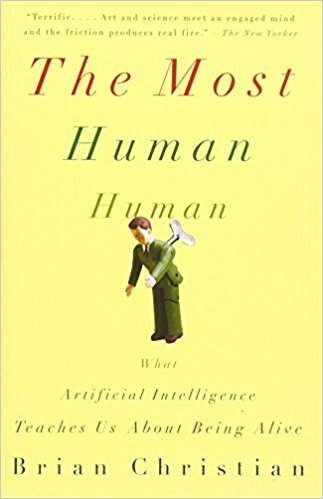
Another book exploring what it means to be human in the age of intelligent machines is The Most Human Human by Brian Christian. Christian decides to compete with the world’s leading AI programs at the annual Turing test competition. As the author’s website describes, he “ uses their astonishing achievements as well as their equally fascinating failings to reveal our most human abilities: to learn, to communicate, to intuit, and to understand. And in an age when computers may be steering us away from these activities, he shows us how to become the most human humans that we can be.”
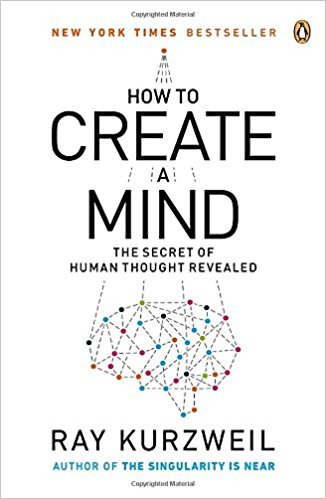
Authors declaring that the human mind can be understood and mapped onto machines include the futurist Ray Kurzweil, who studied under Marvin Minksy, in his book, How to Create a Mind, and Jeff Hawkins, who wrote On Intelligence.
But intellectuals such as Noam Chomsky are skeptical. In an article in The Atlantic, Chomsky notes, “It’s worth remembering that with regard to cognitive science, we’re kind of pre-Galilean, just beginning to open up the subject.” Granted, it was written in 2012, but he is still critical.
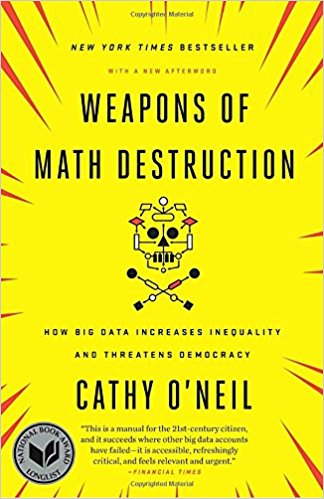
Cathy O’Neil is not only skeptical that machines can think like humans but warns of the dangers of intelligent systems in her book, Weapons of Math Destruction. She describes how mathematical laws and logic can’t contain the massive complexity of nature and human lives. Every intelligent system is reductive and therefore a threat to society.
Researchers and scholars, including some of those inventing intelligent systems, are concerned about the potential for AI to deepen inequality if left unregulated, accessible to few, and without thoughtful planning. Unfortunately, American politicians are absent from this debate, which is yet another problem. Europeans and Canadians are engaging more.
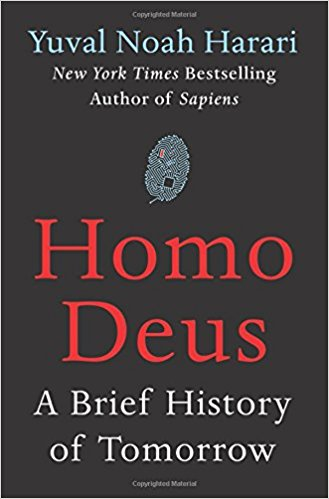
The Israeli historian, Yuval Noah Harari explores such a futuristic scenario in his book, Homo Deus: A Brief History of Tomorrow. He imagines an apocalyptic future where the techno super-rich humans, in a quest for power, develop superhuman traits and create a vastly unequal society with dire consequences.
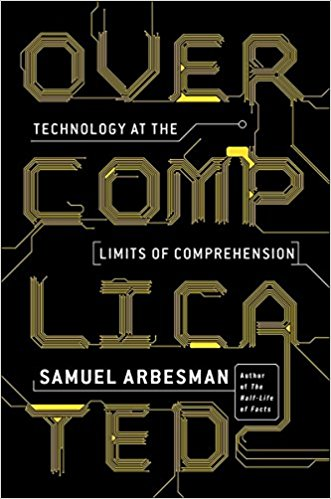
A more positive view of the impact of artificial intelligence is articulated in Overcomplicated by Samuel Arbesman, who offers “a field guide to living with complex technologies that defy human comprehension.”
As technology grows more complex, Arbesman argues, “its behavior mimics the vagaries of the natural world more than it conforms to a mathematical model. If we are to survive and thrive in this new age, we must abandon our need for governing principles and rules and accept the chaos. By embracing and observing the freak accidents and flukes that disrupt our lives, we can gain valuable clues about how our algorithms really work. What’s more, we will become better thinkers, scientists, and innovators as a result.”
An important new research institute analyzing the social implications of artificial intelligence is the AI Now Institute founded by Kate Crawford and Meredith Whittaker and housed at New York University. Their first public report provides policy recommendations and a research agenda for ethical AI.
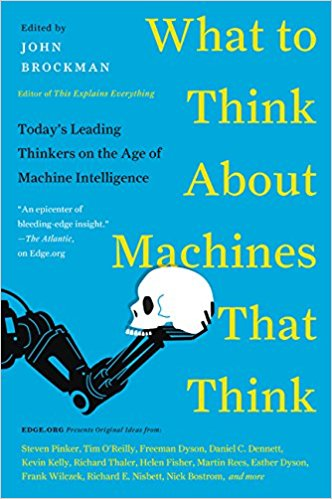
To explore a range of viewpoints, see What to Think About Machines That Think: Todays Leading Thinkers on the Age of Machine Intelligence. Edited by John Brockman, the book contains brief essays by people from a variety of backgrounds, including Steven Pinker, Helen Fisher, Brian Eno, and Stephen Hawking. Machine Art in the Twentieth Century by Andreas Broeckmann also shows the ways that different artists have articulated their relationships to machines in the 20th and 21st century.
The AI debate is heated. Opinions are strong. Activity is frenetic. We’re in the midst of a revolution akin to the development of the steam engine, says MIT professor Erik Byrnjolfsson. The AI gold rush is in full swing as tech companies, businesses, and governments try to cash in. Scientists are rapidly making breakthroughs while researchers, scholars, and activists are sounding the alarm about the dark side of an AI revolution left unchecked. Everyone is trying to steer AI’s trajectory towards their version of an ideal society.
Although AI is much covered in the media, citizens are just beginning to understand what it is. It’s not easy to keep up given the pace of innovation, the complexity of human intelligence, and its profound and broad social implications. But the need for AI literacy is paramount. Without transparency and good governance, too much can go wrong: from perpetuating and increasing bias, to deepening the divide between the rich and poor, to mass surveillance, filter bubbles, and missing the opportunities to call out bias and make all of our lives better—not just an elite few.
Some other excellent articles related to artificial intelligence include:
- MIT Technology Review’s issue on Artificial Intelligence.
- “Data, Culture, and the Ambivalence of Algorithms” by Professor William Uricchio explores the changing ways that algorithms have been used to create, curate, and circulate arts and culture.
- Memo Atken is an artist and researcher working with artificial intelligence. His website is full of interesting insights and experiments.
- A day in the life of a journalist in 2027: Reporting Meets AI by Francesco Marconi and Alex Siegman.
- A TED Talk by Joy Buolamwini about algorithmic bias.
Immerse is an initiative of Tribeca Film Institute, MIT Open DocLab and The Fledgling Fund. Learn more about our vision for the project here.